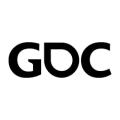Game Developers Conference (GDC) Overview and Highlights
Introduction
The Game Developers Conference (GDC) is an iconic event that has defined the landscape of game development since its inception. As the largest and most influential conference dedicated to interactive entertainment, GDC attracts a global audience of industry professionals, from independent developers to major studios. The conference serves as a critical platform for showcasing innovations, sharing knowledge, and fostering collaboration within the game development community.Historical Background and Evolution
- Origins and Founding: GDC was founded in 1988 by Chris Crawford, a pioneering game designer and developer, with the goal of creating a dedicated space for game developers to share their experiences and knowledge. Originally conceived as a small gathering of industry professionals, the conference has grown exponentially over the years, evolving into a major event that attracts thousands of attendees from around the world.
- Early Milestones: In its early years, GDC focused primarily on providing a forum for developers to discuss game design and programming. The conference quickly gained recognition for its high-quality content and expert speakers, setting the stage for its future success. The introduction of new features, such as workshops and networking events, further solidified GDC's reputation as a must-attend event for game developers.
- Expansion and Growth: As the gaming industry evolved, so did GDC. The conference expanded its scope to include a wider range of topics, reflecting the growing complexity and diversity of the industry. Key milestones in GDC's history include the introduction of specialized tracks on subjects such as virtual reality, mobile gaming, and game monetization. This expansion allowed GDC to address emerging trends and technologies, ensuring that the conference remained at the forefront of the industry.
- Recent Developments: In recent years, GDC has continued to innovate and adapt to the changing landscape of game development. The conference has embraced new formats and technologies, such as virtual and hybrid events, to reach a broader audience and accommodate the needs of an increasingly global community. The addition of new features, such as the GDC Showcase and GDC Vault, has further enhanced the conference's value to attendees.
Key Features and Offerings
1-Innovative Sessions and Workshops- One of the defining characteristics of GDC is its extensive program of sessions, workshops, and panels. These sessions cover a broad range of topics, including:
- Game Design: In-depth discussions on the principles of game design, including level design, narrative techniques, and user experience.
- Programming: Technical sessions focused on game programming languages, development tools, and optimization techniques.
- Art and Animation: Workshops on 2D and 3D art, animation, and visual effects, offering insights into the creative process behind game graphics.
- Virtual Reality: Presentations on the latest advancements in VR technology, including hardware, software, and best practices for creating immersive experiences.
- Monetization Strategies: Sessions on game monetization, including in-game purchases, ad-based models, and subscription services.
2-Networking and Collaboration- GDC is renowned for its networking opportunities, which are integral to the conference experience. The event offers a range of networking activities, including:
- Informal Meetups: Casual gatherings where developers can connect with peers and discuss shared interests and challenges.
- Organized Networking Events: Structured events designed to facilitate connections between professionals, including industry mixers and matchmaking sessions.
- Roundtables and Discussion Groups: Interactive forums where attendees can engage in in-depth discussions on specific topics and share their experiences.
3-Expo and Showcases- The GDC Expo is a vibrant and dynamic space where developers can showcase their latest projects, technologies, and tools. Key features of the expo include:
- Hands-On Demos: Attendees can experience firsthand the latest innovations in game development, including new technologies, software, and hardware.
- Developer Booths: Independent and major studios alike can present their projects and engage with the conference audience.
- Industry Panels: Experts and thought leaders share their insights and experiences on the expo stage, providing valuable context and background for the showcased technologies.
Community Impact and Engagement
1-Fostering Collaboration- GDC plays a crucial role in fostering collaboration within the game development community. By bringing together a diverse group of professionals, the conference creates an environment where ideas can be shared, partnerships can be formed, and innovations can be explored. This collaborative spirit is a cornerstone of GDC, reflecting its commitment to advancing the industry.
2-Educational Opportunities- The educational content provided at GDC is designed to support continuous learning and professional development. Attendees have access to:
- Technical Sessions: In-depth presentations on advanced topics and emerging technologies.
- Workshops: Hands-on training sessions that allow participants to develop new skills and knowledge.
- Keynote Speeches: Inspirational talks from leading figures in the gaming industry, offering insights into the future of game development.

